Why College Students Need to be Careful to Avoid a First DWI
 In Houston, many students have now arrived for the semester to attend school at Houston Community College, Lone Star College, Houston Baptist University, Prairie View A & M, Rice University, Sam Houston State University, and other local universities. Many of these students will kick off their semester by having a few drinks with friends, and may will continue to drink throughout the semester. Villanova reports around 80 percent of college students drink regularly, with around 30 percent often drinking more than four drinks in a single sitting.
In Houston, many students have now arrived for the semester to attend school at Houston Community College, Lone Star College, Houston Baptist University, Prairie View A & M, Rice University, Sam Houston State University, and other local universities. Many of these students will kick off their semester by having a few drinks with friends, and may will continue to drink throughout the semester. Villanova reports around 80 percent of college students drink regularly, with around 30 percent often drinking more than four drinks in a single sitting.
Alcohol use is part of life in college, but this does not mean it is consequence free. College students 21 and over could face charges of driving while impaired if they have a blood alcohol concentration above the legal limit of .08 percent. For younger college students who are drinking, zero tolerance laws mean it is possible to face legal trouble for impaired driving for as little as a single drink.
Any time accusations are made of impaired driving, for some either over or under the age 21, it is important for the college student to react proactively and appropriately and raise drunk driving defenses. Even a single first DWI arrest could have profound consequences for someone who is in college.
College students are often very busy going to class and doing work. A DWI can significantly interfere with the ability to attend school, be productive, and perform in class. Even if you are only arrested and not convicted, you will have to spend time away from your studies in court and you will have to spend money on defending against the charges and facing court costs. You don’t want to waste precious college time or money you may not have in dealing with impaired driving charges.
If you are convicted, the lasting consequences of your DWI conviction can also affect your semester. Your penalties may restrict you from drinking at all, which means no more going out with friends. The loss of your license could make it hard for you to get to campus or to go to off-campus jobs and work. You could even have to spend time doing community service or serving jail time, which takes away from your studies and which could mean missing class.
If you hope to go on to higher education, your DWI on your record could be bad news for admissions and, depending upon what you were specifically charged with, could affect your financial aid or your ability to become licensed in certain professions.
You need to try to avoid these consequences by responding right away and getting the right legal advice to fight a DWI. Whether you are over or under 21 when you are charged, an attorney can help you to raise DWI defenses for a first DWI or subsequent impaired driving arrest.






 Football season has officially arrived, which means that it is now the prime time of the year for people to watch the game and have a few drinks. Unfortunately, law enforcement officials know that football season is a time when a lot of people like to sip some beers while watching the game with friends. Police step up enforcement of drunk and drugged driving during this time of year, which leads to more people being arrested for impaired driving.
Football season has officially arrived, which means that it is now the prime time of the year for people to watch the game and have a few drinks. Unfortunately, law enforcement officials know that football season is a time when a lot of people like to sip some beers while watching the game with friends. Police step up enforcement of drunk and drugged driving during this time of year, which leads to more people being arrested for impaired driving.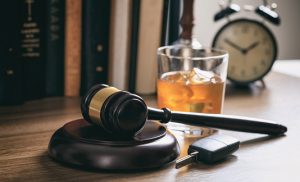 Many people arrested for a
Many people arrested for a 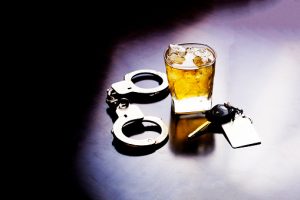 Recently, a man in Texas was sentenced to life in prison after his ninth DWI charge. This was the man’s fifth trip to jail after being convicted of driving while impaired. In the most recent instance, he was involved in a collision and hit another car almost head-on. He ran to a nearby convenience store and asked a clerk to try to hide him, but was unsuccessful in evading police and faced charges. The judge indicated he did not believe the man could be rehabilitated, according to
Recently, a man in Texas was sentenced to life in prison after his ninth DWI charge. This was the man’s fifth trip to jail after being convicted of driving while impaired. In the most recent instance, he was involved in a collision and hit another car almost head-on. He ran to a nearby convenience store and asked a clerk to try to hide him, but was unsuccessful in evading police and faced charges. The judge indicated he did not believe the man could be rehabilitated, according to  KXAN
KXAN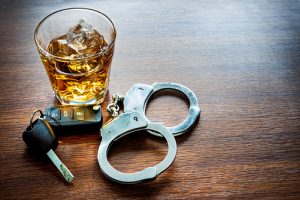 A DWI arrest in Texas could result in an administrative
A DWI arrest in Texas could result in an administrative  Teen drunk driving has declined dramatically since 1991. According to
Teen drunk driving has declined dramatically since 1991. According to 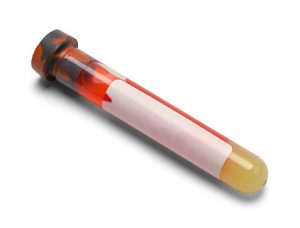 Many defendants who are arrested for impaired driving undergo testing of their blood, breath, or urine in order to determine the level of drugs or alcohol in their system. Prosecutors use toxicology tests and lab reports to show a defendant was too impaired to drive. Defendants who know there are lab results indicating impairment may feel as if this evidence is sufficient for a prosecutor to meet the burden of proof, demonstrate guilt beyond a reasonable doubt, and secure a conviction.
Many defendants who are arrested for impaired driving undergo testing of their blood, breath, or urine in order to determine the level of drugs or alcohol in their system. Prosecutors use toxicology tests and lab reports to show a defendant was too impaired to drive. Defendants who know there are lab results indicating impairment may feel as if this evidence is sufficient for a prosecutor to meet the burden of proof, demonstrate guilt beyond a reasonable doubt, and secure a conviction.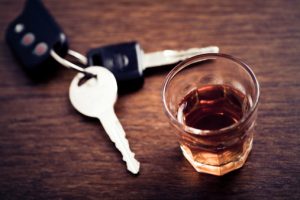 Police, prosecutors, and lawmakers have routinely passed strict laws against drunk driving and have sometimes engaged in tactics to enforce DWI laws which abridge defendants’ rights.
Police, prosecutors, and lawmakers have routinely passed strict laws against drunk driving and have sometimes engaged in tactics to enforce DWI laws which abridge defendants’ rights.
